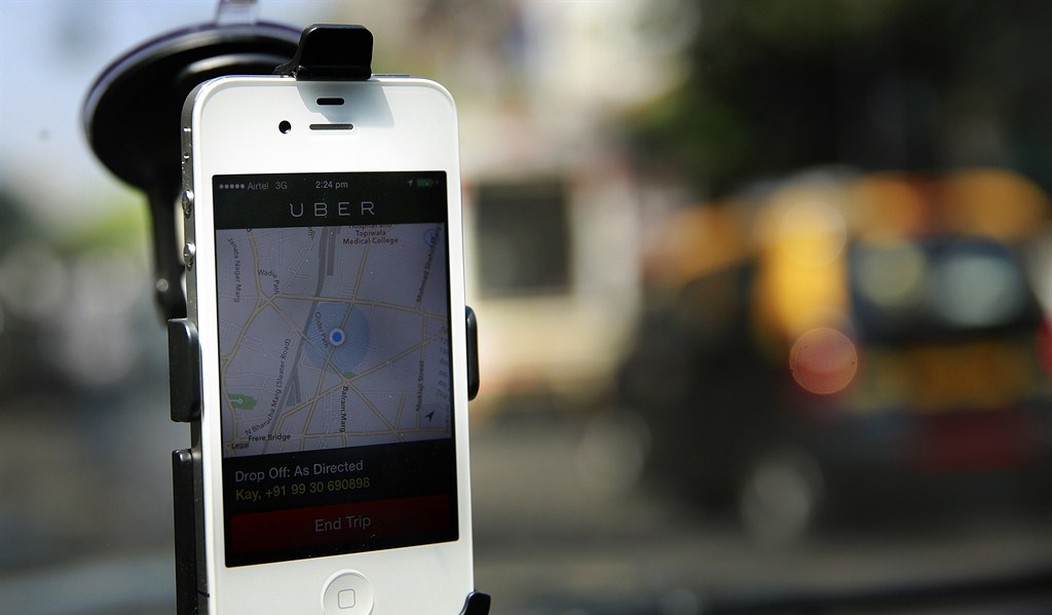Back in the first century a poet named Juvenal surmised that his fellow citizens of Rome would put up with just about anything from their government, as long as they had enough food and entertainment. "Give them bread and circuses, and they'll never revolt" he wrote sarcastically.
In the 1920's Fascist Prime Minister Benito Musolini said much the same thing of his fellow citizens in Italy. The people that he governed would tolerate just about anything he wanted to do, Musoli suggested, "as long as the trains run on time."
Today Americans seem as tolerant of bad abusive government as the ancient Romans and the 20th century Italians were back in the day. But statist politicans in America may just find that they've "jumped the shark," so to speak, if they continue to selfishly manipulate the "the sharing economy."
Despite the socialistic sounding name, the essence of "the sharing economy" is actually very positive. The term is used to describe individuals and organizations providing, on a very basic and freelance basis, products and services to people who want to pay for them, and the seller and buyer are usually brought together through a website or online community.
Take for example Uber.Com, a San Francisco-based venture that matches people who need a ride from one end of a city to another with people who have cars and are willing to travel. Visit the company's website, download the app, and search for people who are ready right now to shuttle you about. If you want to be a provider, Uber.Com has a screening process whereby you can register to deliver transportation services.
Recommended
This very basic " seller-hooks-up-with-buyer" type of transaction is happening at an increasing rate in cities all across the country, all on a freelance non-professional basis and mostly all via online connections. Need someone in your area to run errands or perform household chores? TaskRabbit.Com might help you find a provider who's ready right now. Got an extra room to rent for people visiting your town? AirBnB.Com connects travelers with in-home accomodations.
With people freely choosing to sell their services - and others freely choosing to buy them - it may seem confusing why anbody would object to this type of productivity. But established business owners - small business owners and large corporations alike - don't like the competition, labor unions hate it because the service providers aren't "organized," and politicans think they're "losing tax revenue" that otherwise rightfully belongs to them.
But before you throw your support to politicians and bureaucrats who promise to throw cold water on the embers of "the sharing economy," consider the things that they say, and the realities behind the rhetoric:
A) Sharing economy services providers are"un-trained and un-licensed": Sometimes this is sort-of true, but not entirely. Consider the ridesharing services that Uber.Com or Lyft.Com distribute. Labor union bureaucrats and politicians lament that the drivers aren't trained and licesned as cab drivers, yet both websites require a service provider to be a licensed driver in their jurisdiction. If politicians want to impugn people for "selling" an occassional ride across town via a website, they best crackdown on people that provide rides to friends and family without compensation as well - there isn't much difference between the two.
B) "Sharing economy services aren't taxed and that's unfair to businesses that are taxed": Again, this is sort of a "kind of true kind of not true" proposition. Granted the person who rents a room in their home or provides a ride on occassion isn't subject to the taxes, regulations, licensure and authorization fees that an actual motel owner or cab operator has to put up with. But rideshare providers pay taxes on the fuel, tires and insurance that they consume when they're driving, and room hosts pay taxes on the energy and food consumed by each of their in-home visitors.
C) "Sharing economy providers need to be subject to the same regulations and taxes as more established business owners, just so its 'fair' " : No doubt there is at times a disparity between freelancer service providers and established shop owners. The question is, what will remedy the disparity, and make things more fair? Politicians quite naturally want more control over all businesses, not less, and the option thhey never want us to consider is reducing the burdens of taxes and regulations on existing businesses instead of increasing it for the freelancers.
Will Americans allow selfish politicians and business bosses wrap their chains around freelancers? Or will we demand that the path remain clear for the freelancers? Perhaps we'll begin to act like Americans once again, instead of Italians and ancient Romans.

























Join the conversation as a VIP Member